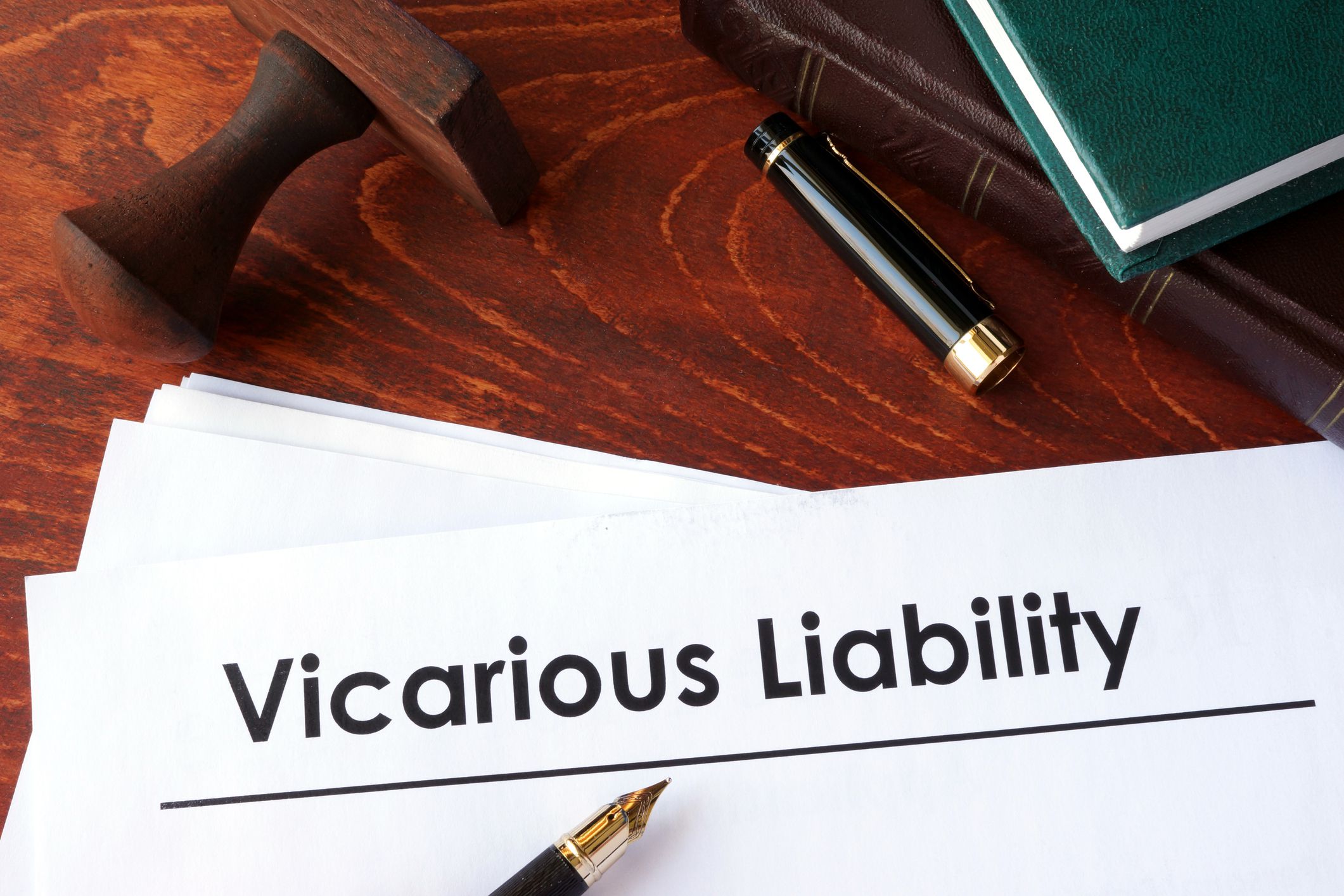Vicarious liability

06 Jan 2023
Vicarious liability is “liability assigned to an employer or other principal for his agent’s or employee’s acts performed in the course of employment or other duty”.
Generally, a person is only liable for acts committed by them. However, an employer may be responsible vicariously to a third party if an employee commits a wrongful act or delict against the third party in the execution of his duties.
An example is when an employer is liable for sexual harassment in the workplace. See this article.
In establishing whether vicarious liability exists, the question is whether the act complained of was committed “in the course of employment” and whether the action is reasonably “incidental” to the employee’s employment duties.
These criteria are questions of fact, and it is immaterial whether the wrong committed by the employee was authorised. An employer will only avoid liability in this situation if he/she can show that an employee acted “on a frolic of his own,” or in other words if the employee acted in a way that was unconnected with his employment.
An English judge wrote, in a case that considered the liability of a church for the sexual assault of one of its priests:
“The doctrine of vicarious liability imputes liability to the employer or principal of a tortfeasor, not on the basis of the fault of the employer or principal, but on the ground that as the person responsible for the activity or enterprise in question, the employer or principal should be held responsible for loss to third parties that result from the activity or enterprise.”
When vicarious liability is attributed to an employer, the employer and employee will be held jointly liable. The employer may claim a contribution from the employee.
The Eastern Cape Division of the High Court handed down judgment in the case of LM and Others v The Mnquma Local Municipality and Another (453/2020) [2022] ZAECMKHC 64. The court had to decide whether the Municipality could be held liable for the actions of its employee.
The Municipality employed one Lukhanyo Tukani to protect the Municipality’s executive mayor. Tukani assisted a friend during an evening outside regular working hours. He fetched the firearm issued by the Municipality (to enable him to perform his job) and fired three warning shots. Tragically, the third bullet he fired ricocheted and entered the plaintiffs’ home and hit the plaintiffs’ five-year-old child in the head, causing a severe brain injury.
As a result of the unfortunate incident, the plaintiffs instituted action against the Municipality and Mr Tukani, seeking to hold the Municipality vicariously liable for Tukani’s actions.
One of the main questions before the court was whether Mr Tukani acted within the course and scope of his employment when he fired the shot that injured the plaintiffs’ child. If not, then whether he fired the shot in circumstances sufficiently close to the Municipality’s business to establish vicarious liability.
The Municipality argued that it issued the firearm to Tukani solely to protect the executive mayor.
The court heard that Tukani’s job description was “activities/tasks associated with maintaining law, order, safety and security through the application of laid down policing, protection, firefighting and rescue procedures and attending to processes aimed at compliance with laws, by-laws and regulations in order to ensure any action or situation threatening safety is identified and promptly attended to”.
The court determined that Mr Tukani’s actions fell squarely within the scope of his job description and that his actions were closely linked to the purposes and business of the Municipality.
As such, the Municipality and Mr Tukani were jointly and severally liable for the plaintiffs’ damages as claimed for the minor’s injuries.
See also:
- Vicarious liability for data breaches – Beware!
- Attention all business owners! You could be held vicariously liable for an employee’s abuse of power
- Warrantors beware: An independent contractor can be your “agent”
- Warning employers – Liability for hate speech on social media

